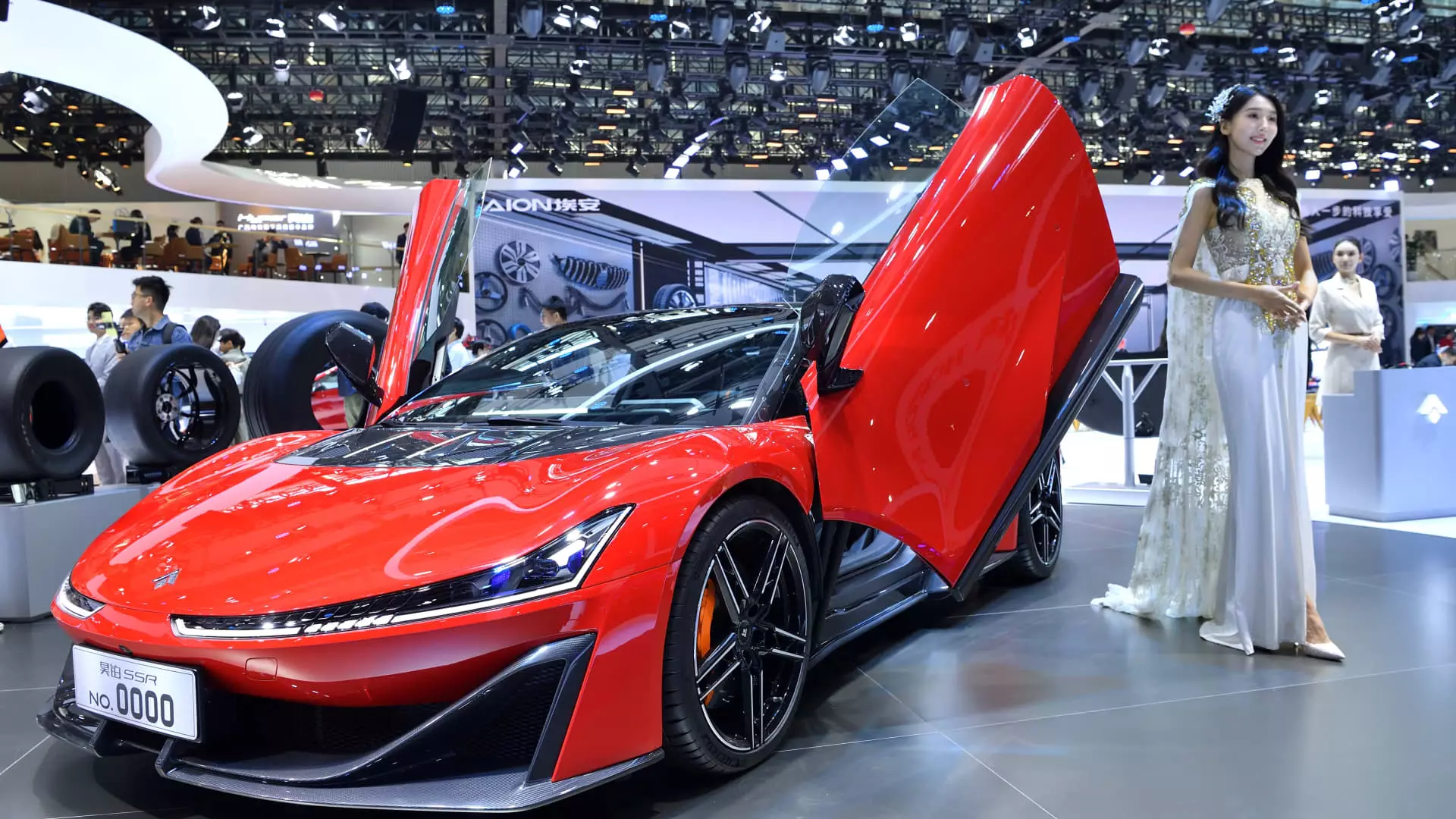The automotive industry is witnessing a significant shift as Chinese automakers are projected to aggressively expand their presence outside of China. According to a recent report by AlixPartners, Chinese automakers are expected to achieve a staggering 33% of the global automotive market share by the year 2030. This growth is a substantial increase from the forecasted 21% market share for this year. The report highlights that much of this expansion will come from markets outside of China, with sales expected to grow from 3 million to 9 million by 2030.
The rapid expansion of Chinese automakers poses a major concern for legacy automakers and policymakers worldwide. The fear of China-made vehicles flooding the markets and undercutting domestically produced models, particularly in the all-electric vehicle segment, is looming large. The report emphasizes that Chinese automakers are expected to grow across all markets globally. However, the expansion is projected to be relatively smaller in countries like Japan and North America, where stringent safety standards and import tariffs on Chinese EVs pose significant challenges.
Chinese automakers are making significant inroads in regions like Central and South America, Southeast Asia, the Middle East, and Africa. The report suggests that Chinese automotive brands are set to double their market share in Europe from 6% to 12% by 2030. This growth can be attributed to several factors, including cost advantages, localized production strategies, and technologically advanced vehicles that cater to evolving consumer preferences for design and innovation.
Mark Wakefield, global co-leader of the automotive and industrial practice at AlixPartners, describes China as the industry’s new disruptor. Chinese automakers have the capability to create innovative and competitive vehicles that are faster to market, more affordable, technologically advanced, and efficient to produce. With legacy automakers like General Motors losing ground in China, Chinese brands like BYD, Geely, and Nio are rapidly gaining prominence in the global automotive landscape.
To stay competitive in the face of growing Chinese automaker dominance, traditional automakers are advised to rethink their business development processes and the pace of vehicle development. Chinese EV automakers have demonstrated the ability to bring new products to market in half the time of legacy automakers, mainly by focusing on meeting standards rather than overengineering. Additionally, Chinese automakers enjoy a 35% cost advantage with products labeled as “Made-in-China,” further boosting their competitiveness in the global market.
The rise of Chinese automakers is reshaping the global automotive industry landscape. With a clear focus on innovation, cost efficiency, and market expansion, Chinese automakers are poised to grab a more significant share of the market by 2030. Legacy automakers must adapt to the changing dynamics of the industry and enhance their competitive strategies to thrive in an increasingly competitive market dominated by Chinese brands.



Leave a Reply